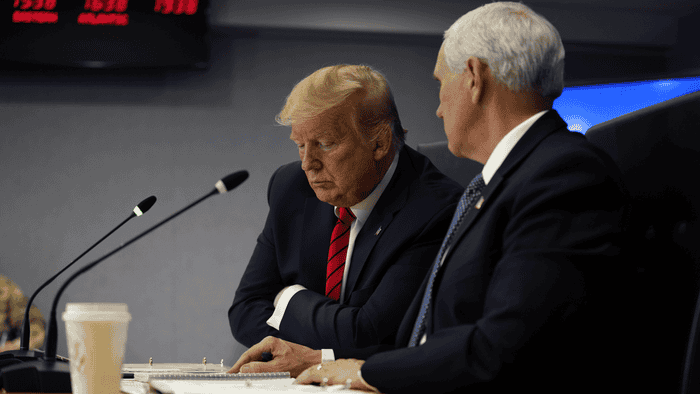
According to a new report from theWashington Post, U.S. intelligence agencies gave "ominous" warnings in January and February trying to explain to the Trump administration about how serious the coronavirus could be.
The report says intelligence agencies didn't predict when the virus would make its way to America, or what steps should be taken when it does, as those issues are outside their range of expertise. But those reports did track the virus as it spread throughout China, and other countries, and it warned that Chinese officials were minimizing the danger of the outbreak (we'll probably not learn the extent of that until the HBO miniseries comes out 30+ years from now).
As the Post wrote:
"Taken together, the reports and warnings painted an early picture of a virus that showed the characteristics of a globe-encircling pandemic that could require governments to take swift actions to contain it."
The information reportedly failed to lead to any sort of urgency from President Trump or lawmakers, as the former downplayed it publicly and privately, and the latter was caught off guard (unless it came to selling off their stock, apparently).
The warnings are said to have "increased in volume," and by early February, a "majority of the intelligence reporting" from daily briefs was on the subject of the coronavirus.
Anecdotes from the report include an instance where Human Services Secretary Alex Azar spoke to Trump about the virus on January 18, but he was interrupted when the president asked when flavored vaping products would start being sold again.
Later in January, the acting White House chief of staff, Mick Mulvaney, met with aides to try and get higher-level officials to start paying serious attention to the disease. He tried to make his point by saying that if this issue wasn't addressed, Trump could lose his re-election bid. Mulvaney held regular meetings on the subject, but those who talked to the paper said the president was unconcerned because he didn't think the virus was extensively circulating around the U.S.
Trump is also said to have denied the threat by choosing to instead believe info put out by China's president, Xi Jinping. The Post reports that advisers insisted China was putting out false data about the virus's infection and death rates, but that Trump still praised their president in late January.
In a meeting that took place in February, Trump reportedly argued that if he pressured Xi more than he was then China would be less likely to tell the U.S. how they were managing the outbreak.
An anonymous official quoted in the piece was critical of Trump's response, saying, "Donald Trump may not have been expecting this, but a lot of other people in the government were — they just couldn’t get him to do anything about it… The system was blinking red."
A spokesman for the White House responded to that criticism by giving the Post a statement in which he said, in part, "It's more than disgusting, despicable and disgraceful for cowardly unnamed sources to attempt to rewrite history — it's a clear threat to this great country."
